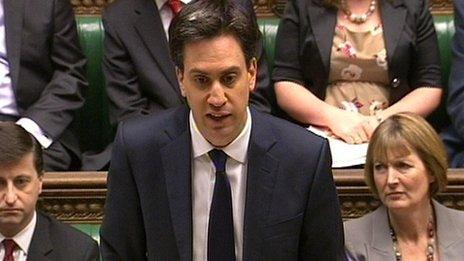Why is Cameron's Europe speech so significant?
- Published
- comments
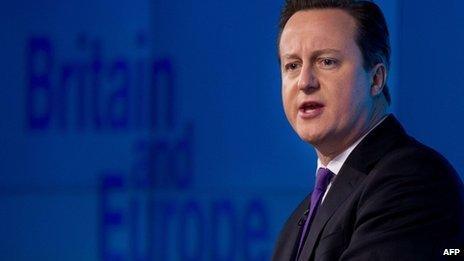
David Cameron's explicit rejection of the idea of "ever closer union" with the words, "for Britain - and perhaps for others - it is not the objective," may prove to be the most historically significant part in his long awaited Europe speech.
Why? When the UK has so often been the European Union's one nation "awkward squad". Doesn't the series of opt outs it has negotiated make this position quite obvious?
It is true that the UK opted out of the 1985 Schengen agreement on borders, of committing to join the Euro, and made sure it would have to opt "in" to a raft of new police and justice powers. There are other countries that have also negotiated opt-outs here and there - so why is today's language significant?
The importance of rejecting ever closer union lies in stating something explicitly that mainstream politics in Europe has been side-stepping for decades. There are many supporters of the European project who imply that unless the whole structure of treaties, summits, and memoranda carries on moving inexorably on, it will wither and die. Could the Conservative leader be the first mainstream European politician to make the case that it doesn't have to be that way?
It is clear there are sections of the European public who share the nervousness of Mr Cameron's grassroots Tories about ever closer integration. In both France and the Netherlands, the public rejected the European constitution in popular votes nearly eight years ago. Sweden voted against joining the Euro, and Denmark also has an opt-out on the single currency.
While public opinion has sometimes coalesced, euro-sceptically, around particular issues in these countries, what has been lacking is a broad philosophical acceptance that integration may have gone far enough or, indeed, as Mr Cameron has argued, need to be reversed in some areas. Indeed where such arguments have been made on the continent, it tends to be by parties on the extremes of Left and Right.
In France or Germany, these types of argument touch deep insecurities about the war and the need to buttress peace by "ever closer union". The real challenge to this philosophy in those two countries comes from the extreme Right. So the idea of setting out an alternative is tainted in the eyes of many Germans or French with an ugly whiff of neo-fascism.
Does the passage of time or the intensity of the economic crisis mean that the old post-war arguments for further integration might be lessening, and that other countries might see a "UKIP effect" in which the heresies, once confined to the fringe, may become newly and respectably mainstream?
Mario Monti, facing a Eurosceptic Silvio Berlusconi in Italian elections, has warned the EU that unless it makes more concessions on the bailout package, "Italy - which has always been a pro-European country - could flee into the hands of populists."
It is an odd thing when a man running for office warns against "populism"; as Mr Monti has a few times in recent months, alluding to anti-EU trends across the continent. And his attitude, as a former EU commissioner and advocate of "ever closer union," highlights that centrist candidates could find themselves in trouble at the polls in some countries if they paint euro-sceptics as extremists.
In the Netherlands too there have been some interesting recent currents, with the centre right party expressing greater reservations about European integration, expropriating some of the language once confined to the extremes. This provides a clue as to why Mr Cameron originally hoped to give his speech in Amsterdam.
Downing Street clearly hopes that someone, anyone, will make common cause with the British prime minister in his argument that European treaty revisions, that may be required to buttress the eurozone, offer an opportunity to re-visit some of the concessions of powers to Brussels. The Netherlands and Sweden, their two main hopes, are not quite ready to do so.
However it will only require a couple of significant European players to align with Mr Cameron for the awkwardness of isolation to lessen and for his platform to be taken more seriously in Europe.
On the assumption that the process he described today does not lead to a UK exit from the EU - for this would require a great many things to go wrong for him - it is the announcement of an explicit policy or set of ideas to counter the idea of "ever closer union" that may prove to be this speech's most important legacy.
- Published23 January 2013
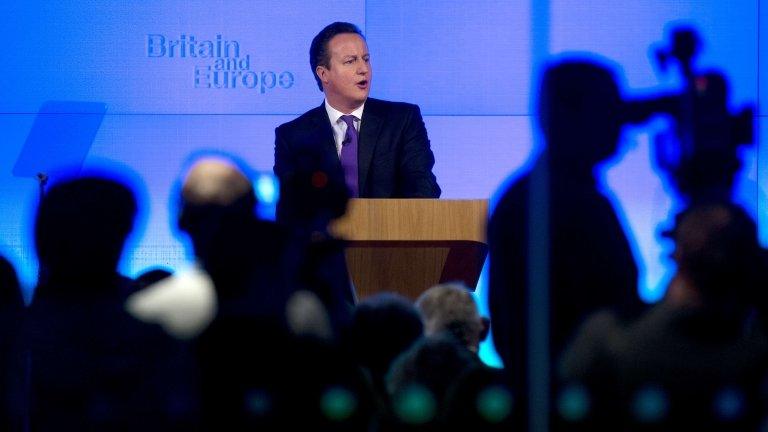
- Published23 January 2013
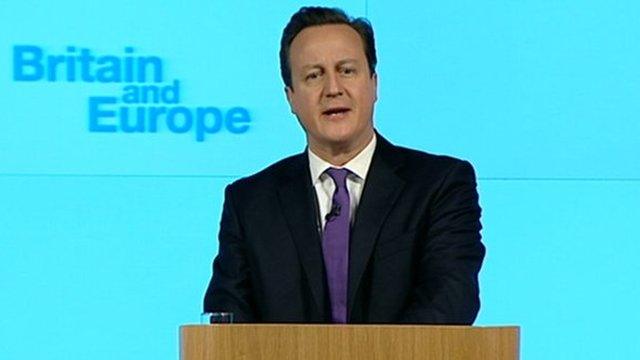
- Published23 January 2013
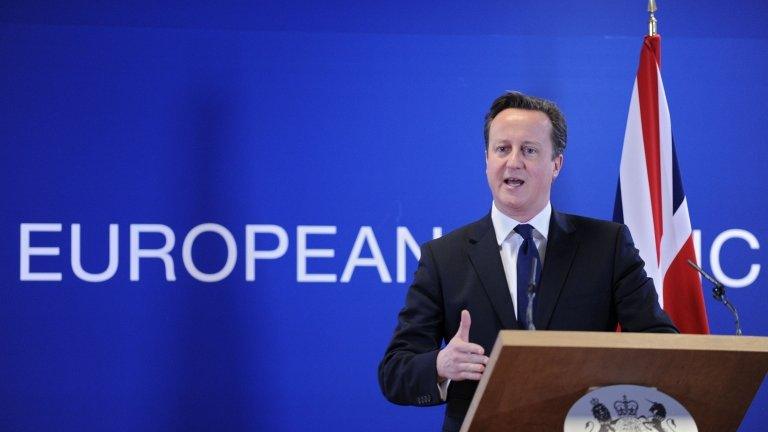
- Published23 January 2013
